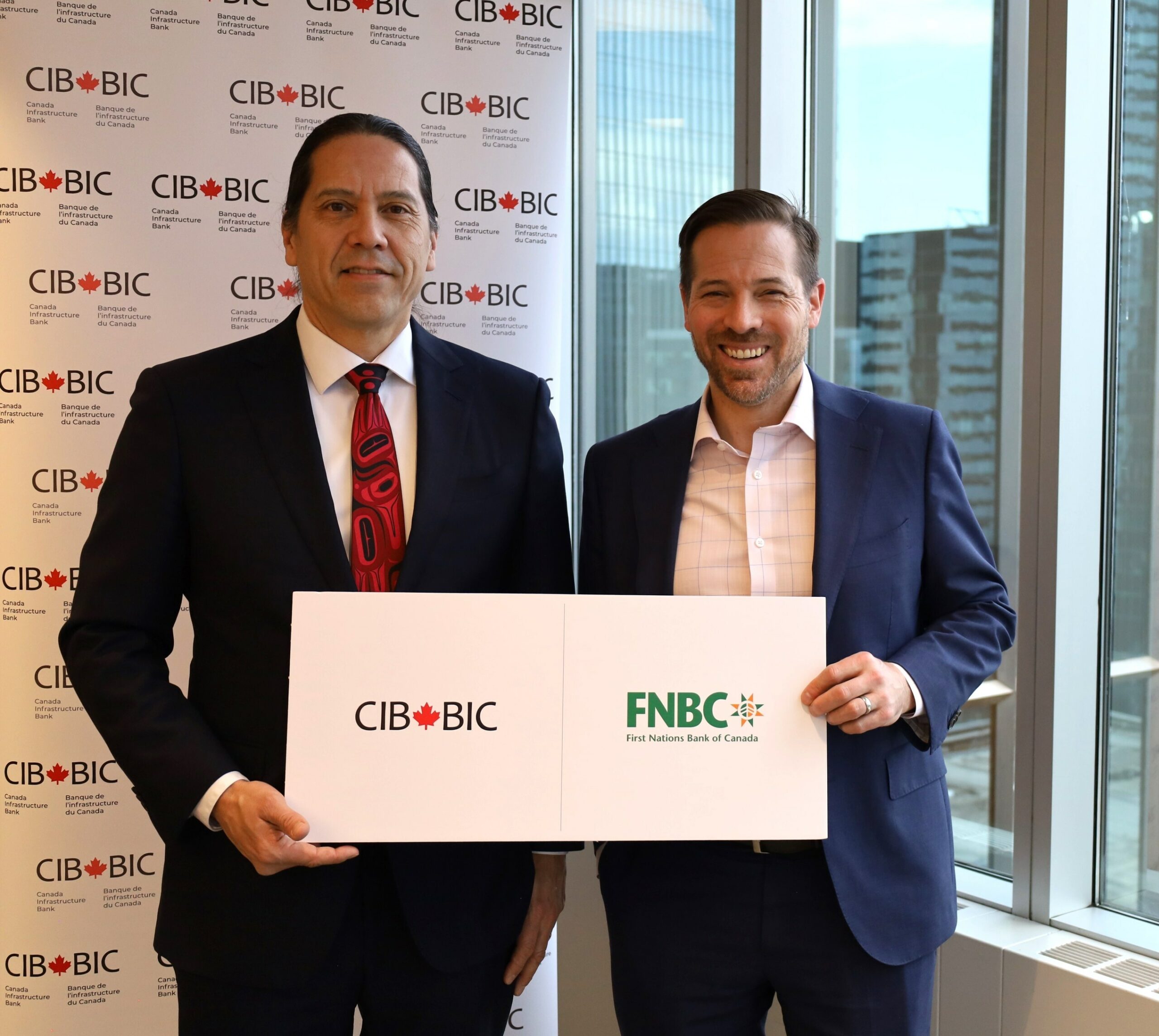Historic $100M loan agreement will enable Indigenous infrastructure
Indigenous communities will have access to affordable, flexible financing to unlock infrastructure development

FNBC CEO Bill Lomax (left) and CIB CEO Ehren Cory.
Key Takeaways:
- CIB’s $100 million participation agreement with the First Nations Bank of Canada will enable new infrastructure projects in First Nations, Métis, and Inuit communities.
- Interested Indigenous communities can apply for loans to finance enabling infrastructure, with the process managed entirely by FNBC.
- Enabling infrastructure can include site works, roadworks, water and wastewater management and utility connections.
The Whole Story:
The Canada Infrastructure Bank (CIB) has announced a $100 million loan participation agreement with the First Nations Bank of Canada (FNBC) for enabling infrastructure in First Nations, Métis, and Inuit communities.
Indigenous communities will have access to affordable and flexible financing to unlock enabling infrastructure development that can support improved living conditions, new economic opportunities and housing.
“This first-of-its-kind loan product with FNBC catalyzes innovation in the financial services sector and in the Indigenous market. Through this investment, Indigenous communities will work with FNBC to access critical financing to develop much-needed infrastructure in their communities and advance socio-economic reconciliation,” said Ehren Cory, CEO of CIB.
According to CIB, Indigenous communities’ limited access to affordable capital at flexible terms can constrain, impede or stop the achievement of community development projects.
Enabling infrastructure can include site works, roadworks, water and wastewater management and utility connections, and is needed to support economic and community growth through residential, commercial or industrial developments.
To pair with the CIB’s commitment, FNBC will provide concurrent project lending. CIB stated that together, this comprehensive financing package will enable Indigenous communities to realize their community and/or economic development plans faster.
FNBC is the largest Indigenous-owned and -led financial institution in Canada. More than 70% of FNBC’s employees are Indigenous, and Indigenous clients comprise 90% of its loan portfolio. FNBC provides services to First Nation, Métis and Inuit people and communities in urban areas and remote locations, including in Canada’s arctic region.
“This new loan program will make infrastructure projects in Indigenous Nations and communities more affordable and allow for more opportunities to develop Indigenous-owned lands,” said Bill Lomax, president and CEO of FNBC. “By partnering with CIB, we can leverage our expertise in working with Indigenous communities and support new projects in a way we have not seen before.”
Through the CIB’s Indigenous Community Infrastructure Initiative, the CIB collaborates with First Nation, Métis and Inuit communities across Canada on infrastructure projects in partnership with, and for the benefit of Indigenous communities across Canada.
Indigenous communities interested in accessing this community development financing, can learn more on the FNBC site.
This first-of-its-kind loan product with FNBC catalyzes innovation in the financial services sector and in the Indigenous market. Through this investment, Indigenous communities will work with FNBC to access critical financing to develop much-needed infrastructure in their communities and advance socio-economic reconciliation.

